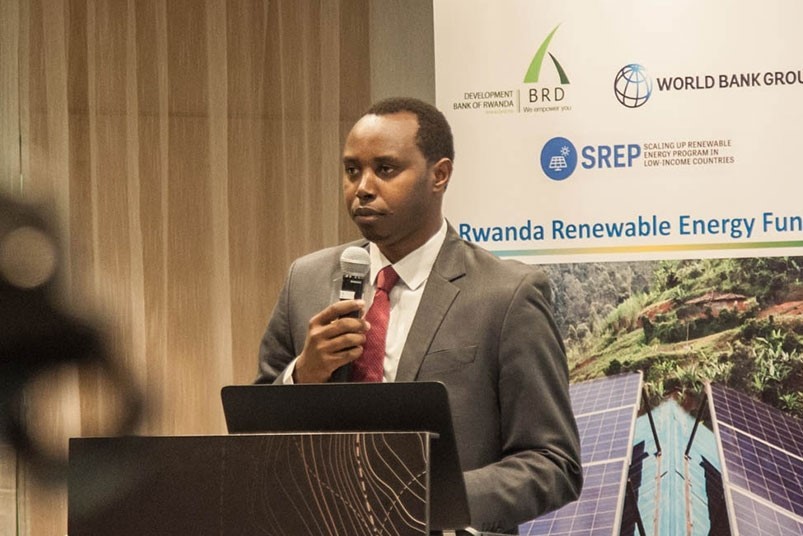Kigali, 14 November 2017: Rwanda’s energy rollout efforts received a boost following the operationalisation of $50 million with the launch of Rwanda Renewable Energy Fund Project that was held at Kigali Marriot Hotel aiming at increasing off-grid technology and facilitate private sector participation in off-grid energy solutions.
Speaking at the launching ceremony, Robert Nyamvumba, the Energy Division Manager at the Ministry of Infrastructure, said the fund will support in the roll-out of the off-grid technologies to complement the existing on grid program of extending the central grid to achieve universal access by 2024.
In the current national strategy, off-grid solutions are meant to account for about 48 per cent while on-grid will be 52 per cent of national electricity access. Off-grid solutions will be through mini-grids and solar energy solutions particularly to target rural areas that have the least access to energy. The idea behind on-grid roll out program is to focus on productive users and households living within 37 meters from the low voltage lines to provide better services and rapidly increase access to the population,” Nyamvumba explained.
He noted that access to electricity remains a priority for Government in a bid to continuously improve Rwanda’s investment climate.A section of the funds will also be used to avail credit facilities to mini-grids and developers in the sector.
The intervention comes barely a month after local players in the renewable energy sector under their umbrella body, Energy Private Developers, had come out seeking financing to help meet national targets.
The fund will allow Savings and Credit Co-Operatives (SACCOs), commercial and micro-finance institutions provide affordable loans to their clients to purchase certified solar systems.
Dr. Livingstone Byamungu, the Chief Investment Officer at the Development Bank of Rwanda (BRD), said the main objective of the fund is to increase affordability and reduce access to finance challenges. “The main objective is to increase affordability and reduce access to finance challenges in partnership with SACCOS, commercial and micro-finance banks and mini-grid developers,” he said.
The financial institutions will be able to access direct credit as well as credit lines that they will, in turn, avail to households, micro-enterprises and small and medium enterprises. “The target beneficiaries are households and businesses with an objective to replace the use of Kerosene, diesel and dry cell batteries to the use of clean energy,” he said.
In the recent World Bank Doing Business report, the getting electricity indicator ranked lowest at 119 position globally largely due to challenges of reliable power for productive uses.
World Bank Country Manager Yasser El Gammal said the intervention is meant to boost rural electrification efforts to expand off-grid connections to benefit about 445,000 Households equivalent to about 19% access. “It is expected to stimulate demand by providing financing to households and small businesses through financial institutions near them that they already have relationships with. There is also a window to support private sector and providers of mini-grids to further boost capacity, thus impacting both the supply and demand side,” Gammal said.
The intervention particularly targets rural areas which have very low energy access rates;the districts that still have less energy access and are expected to benefit most from the latest initiative.
The National Transformation Strategy (NTS) aims at connecting all the households in next seven years, by 2024, connecting all the productive users by 2022, and ensuring that the entire capital is connected in the next two years by 2019.
In the solar energy sub-sector, there are three major operators, Mobisol, BBoxx, Ignite power, and other solar companies which have so far contributed about 11 per cent of national penetration with off grid access.

 ENGL
ENGL KINY
KINY